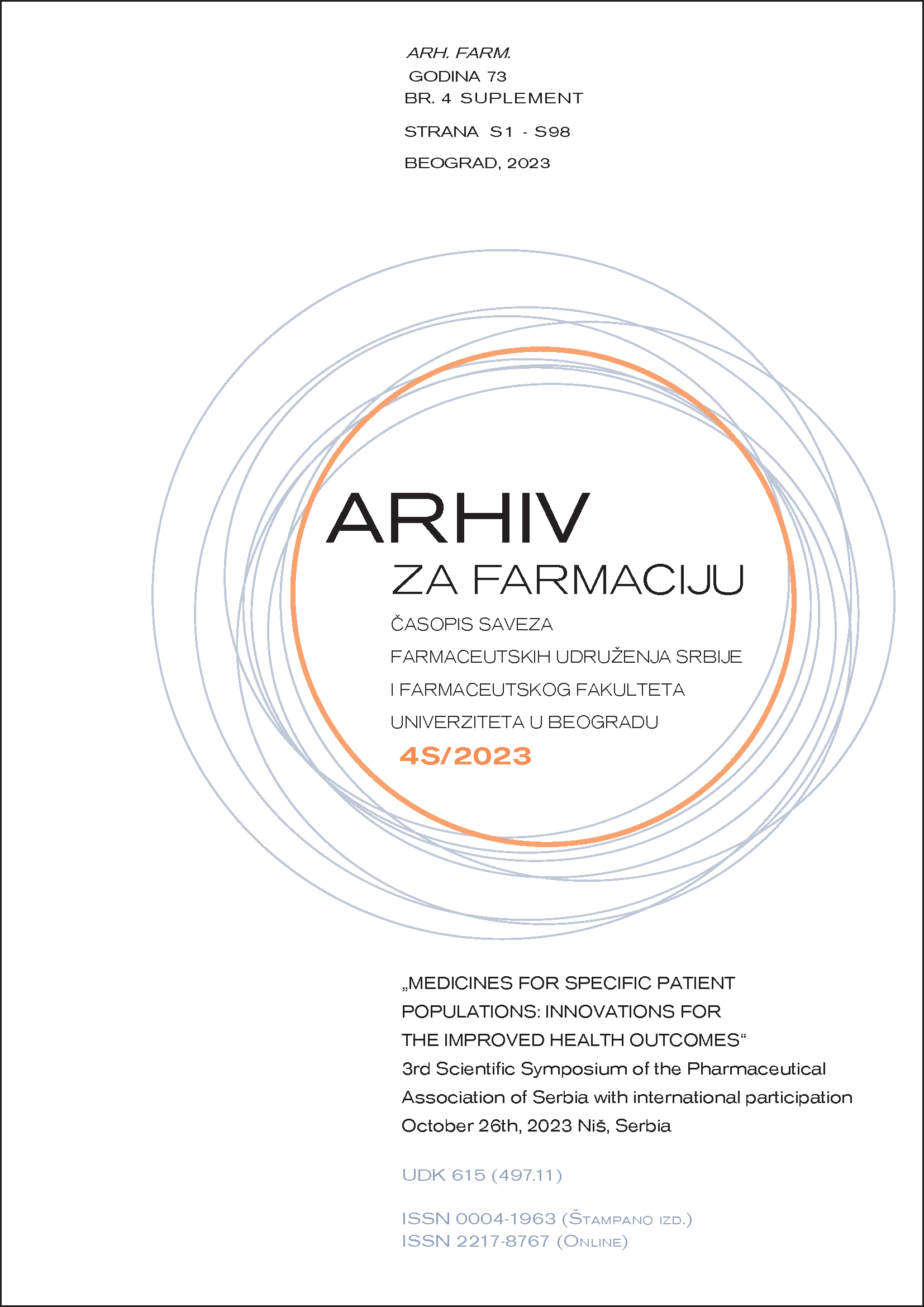EFFECT OF THYME HYDROSOL ON SPONTANEOUS AND ACETYLCHOLINE-INDUCED GASTRIC FUNDUS CONTRACTIONS
Abstract
Hydrosols are obtained during the extraction of essential oils from aromatic plants. Hydrosols contain a certain amount of bioactive molecules, which are quantitatively and qualitatively different from essential oils (1). Thyme essential oil has cytotoxic properties in high concentrations and can damage intestinal cells when administered orally (2); therefore, hydrosol application is a potentially safe way to use the diluted water-soluble fractions of essential oils. The aim of this study was to investigate the effect of different volumes (10-1000 µl) of hydrosol obtained by hydrodistillation of the aerial part of Thymus vulgaris L. (Lamiaceae) on the spontaneous and acetylcholine (Ach)-induced contractions intensity in the isolated rat fundus (3). Application of different volumes of T. vulgaris hydrosol significantly decreased the intensity of spontaneous contraction of the isolated rat fundus in a dose-dependent manner. The application of 250, 500, and 1000 μl of hydrosol induced more than 50% relaxation in fundus tissue (p<0.01). The application of hydrosol in a volume of 138 μl produced a 35.2 ± 4.8% relaxation of Ach-induced contractions of the gastric fundus. It is important to find an efficient method of administering natural products to benefit from their medicinal effects. Essential oils and their components can be inactivated when in contact with enzymes and intestinal contents. Hydrosols are valuable, innovative natural products that have great potential for use in the food industry as functional beverages.
References
1. Aćimović M.G., Tešević V.V., Smiljanić K.T., Cvetković M.T., Stanković J.M., Kiprovski B.M., Sikora V.S. Hydrolates – by-products of essential oil distillation: chemical composition, biological activity and potential uses. Adv. Technol. 2020; 9(2):54-70.
2. Al-Shahrani M.H., Mahfoud M., Anvarbatcha R, Athar M.T., Al Asmari A. Evaluation of antifungal activity and cytotoxicity of Thymus vulgaris essential oil. Pharmacognosy Communications. 2017 Jan 1;7(1).
3. Stojanović N.M, Mladenović M.Z., Maslovarić A., Stojiljković N.I., Randjelović P.J., Radulović N.S. Lemon balm (Melissa officinalis L.) essential oil and citronellal modulate anxiety-related symptoms - In vitro and in vivo studies. J Ethnopharmacol. 2022 Feb 10;284:114788.

